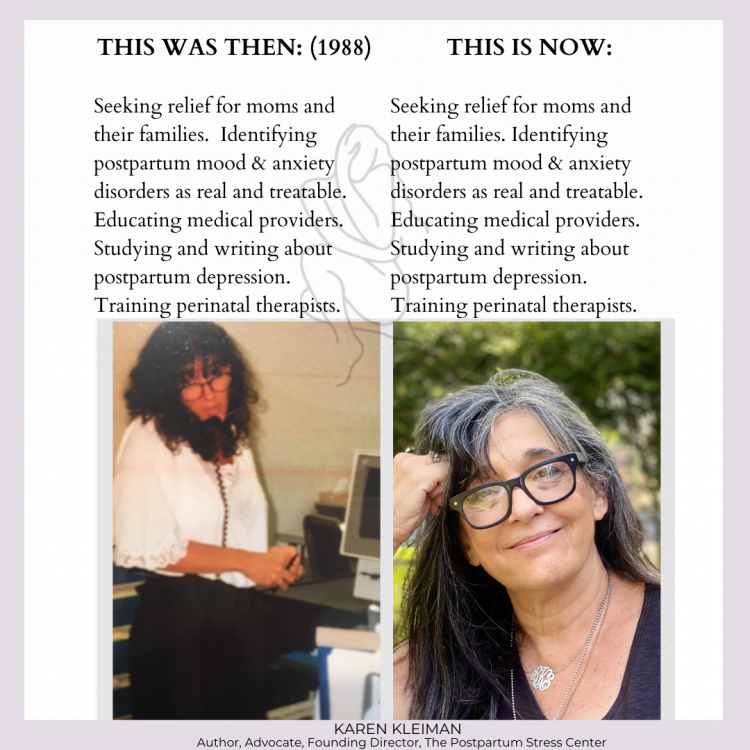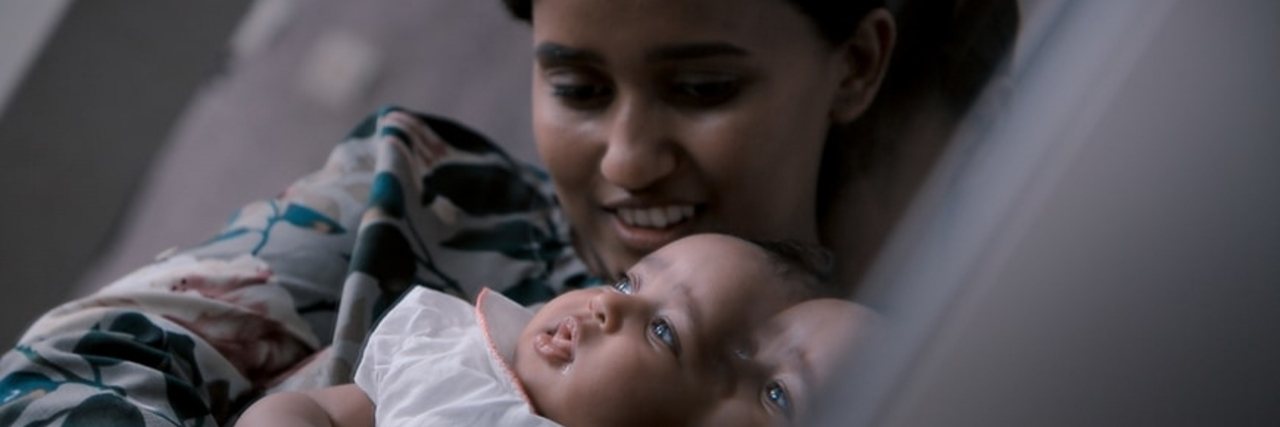Why I'll Never Stop Speaking Out About the Reality of Postpartum Disorders for New Parents
Editor's Note
If you experience suicidal thoughts, the following post could be potentially triggering. You can contact the Crisis Text Line by texting “START” to 741741.
When I knocked on their doors in the late 80s, some medical providers listened to me, but most thought they knew everything they needed to know about postpartum depression and anxiety. They believed symptoms of perinatal distress landed on two ends of the spectrum. Either women had severe symptoms, were unable to care for their children, and were possibly at risk of harming themselves or their babies, or every new mother who presented with symptoms of overwhelming anxiety and tearfulness pretty much characterized our culture’s antiquated expectation that “all new mothers feel this way.” Very few health care providers took the time to learn that there was something deeper going on with new moms’ mental health.
Women who risked expressing their fears and vulnerabilities were often met with patronizing hyperboles, or in rare instances, they were shocked to discover that Child Services was called to protect their baby from the perils of misinterpreted maternal emotions. Afraid they would be misunderstood, overreacted to, or underreacted to, many new moms learned to stop telling their providers how they were really feeling.
Continuing my pursuit for information and answers, I directed my attention to the moms themselves. I encouraged them to talk to me. I said, “Tell me what you are feeling, what you need, what might help you feel better.” They told me they were scared. They told me they never expected being a mother would feel this way. They told me they were terrified no one would understand some of the thoughts and emotions they were having and they would be judged to be a bad mother, or worse, their baby would be taken away. They told me they loved their babies more than anything in the world and they did not believe they were good moms. They told me they never felt this bad in their entire life. They told me no one was listening.
So I listened. And I went back to knocking on doors.

Today, more people are listening — but not enough. While there is momentum in the right direction, distress cries still go unnoticed and are often dismissed as par for the course for new motherhood. Perinatal distress pierces the hearts of new mothers, and until our culture takes this seriously, women and babies will continue to die. At least 1 out of every 7 women walking into OBGYN offices experiences clinical depression. This is not the blues, an adjustment disorder, or the transition to motherhood. We are talking about serious symptoms that meet diagnostic criteria for a mood or anxiety disorder.
You cannot tell a mother has a postpartum disorder by looking at her. You cannot assume if she looks “good” or says what you expect to hear that she is fine. If you do not ask the right questions, you have no idea if she is thinking of killing herself or not.
We cannot afford not to listen to new moms. And now more than ever, many new moms are incomprehensibly overworked, overtired, and near their breaking points. In today’s uncertain climate with unprecedented stressors and expectations, our mission to protect the mental health of new moms and dads is more imperative than ever. We must ask the hard questions. We must not judge. We must create a safe environment that enables new parents to trust us. We must listen. We must respond with concrete resources and support. After all, these parents are raising the children who are our future. They should not be doing that alone.
Karen Kleiman is an author, an advocate, and the Founding Director of The Postpartum Stress Center, LLC.
Lead image by Gift Habeshaw on Unsplash. Internal image via contributor.

